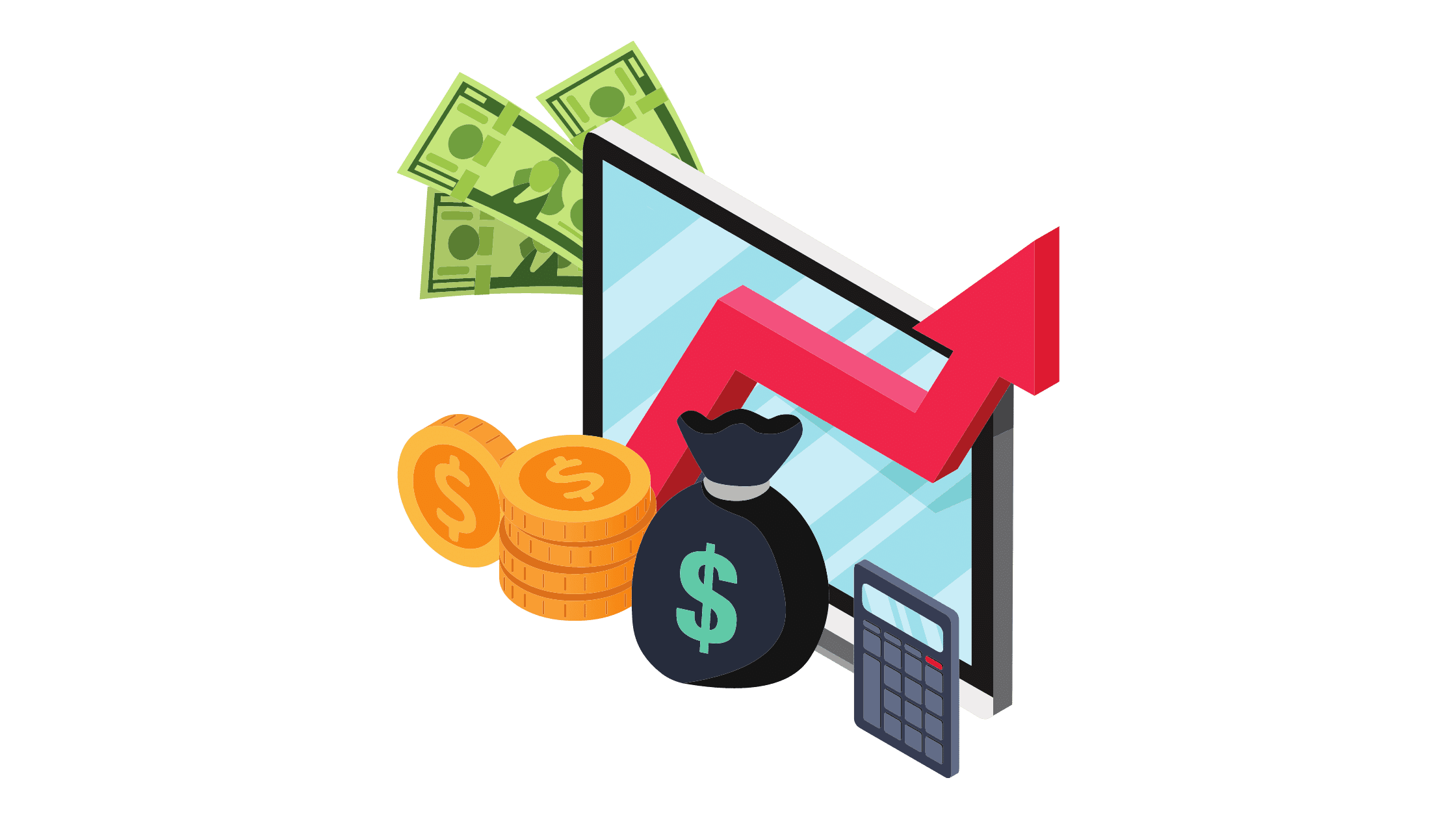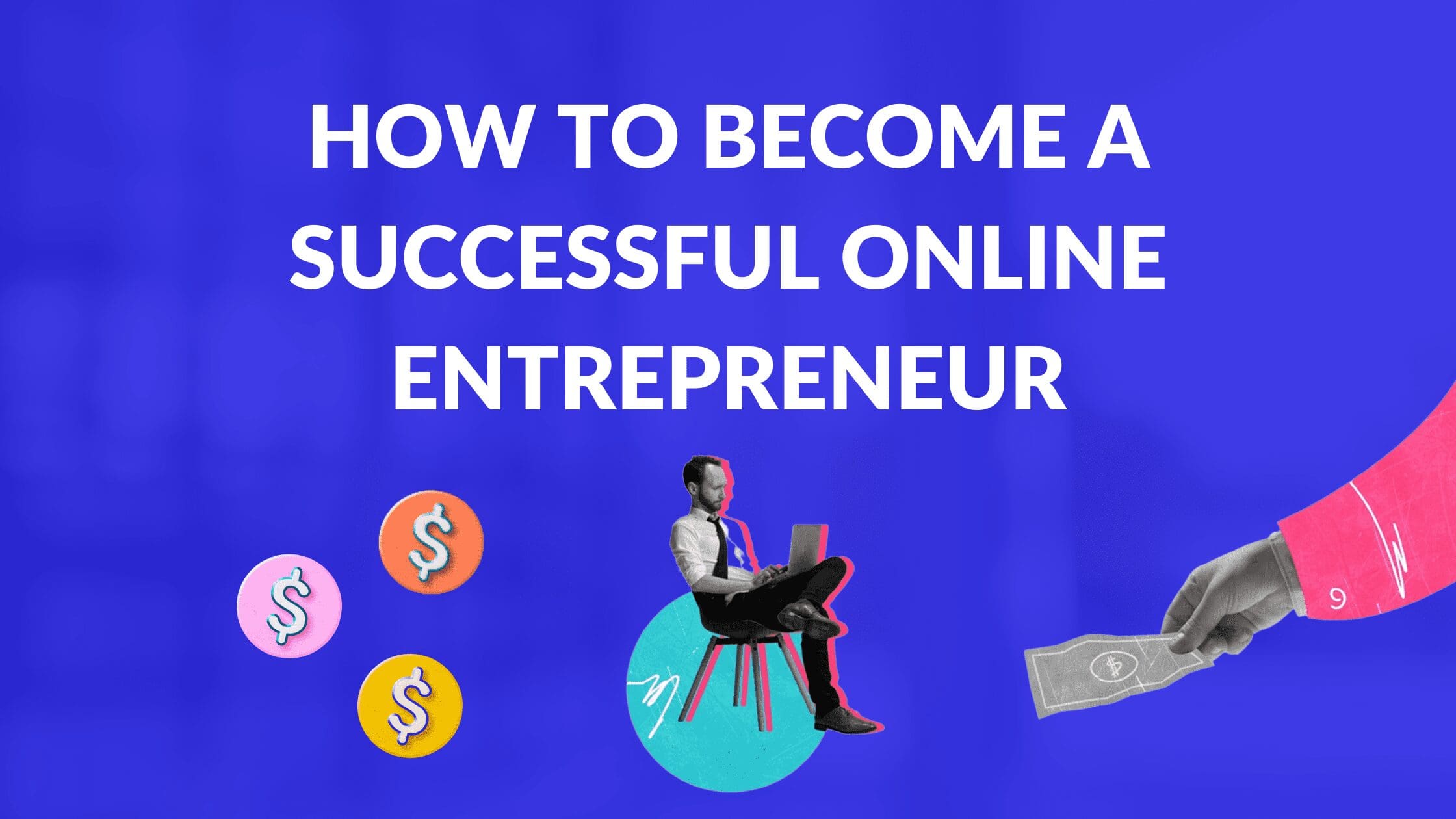How to Become a Successful Online Entrepreneur

Written by Casey Botticello
Disclosure: Some of the links below are affiliate links, meaning that at no additional cost to you, I will receive a commission if you click through and make a purchase. Read our full affiliate disclosure here.
Entrepreneurs are hot property right now. From pop-up restaurants to entirely new business concepts, these high-risk, high-return industry captains have changed the way people see business. But the days of flashy businesspeople sporting tailored suits and rolling around in overpriced cars are winding down. They’re slowly being replaced by a new generation of innovative business professionals – the online entrepreneur.
The world has changed a lot over the past two-and-a-half years. The COVID pandemic shook the global order, shutting multinational organizations and putting many small and medium enterprises out of business. With an estimated 95% of all purchases expected to take place via eCommerce by 2040, it’s clear that the future lies with doing business online. Online entrepreneurs brimming with online business ideas are staking their claim in this new economic landscape, transforming the internet into a vibrant industrial springboard to launch and run thriving digital businesses.
But what is an online entrepreneur, how can you become one, and what will you need to be successful? In this article, we look at online entrepreneurs, and what it is that makes them tick. We’ll explore the steps for how to become a successful online entrepreneur and how to make it once you’re there.
What is an Online Entrepreneur?

An online (or internet) entrepreneur is a business owner who conducts their business – that’s right – online. They’re the people who have come up with one or more online business ideas and decided to walk away from the daily 9 to 5 grind to take a shot at starting their own business venture. But to really get a good idea of what it means to be an entrepreneur, first, we’ll need to understand the concept of entrepreneurship itself.
Entrepreneurship vs. Traditional Business Ownership
A core tenet of entrepreneurship concerns the objective of setting up a business or a set of businesses in the hope of making a profit. Now, before you ask, “But isn’t that the same as being a business owner?”, yes, it is, but entrepreneurs take things a step further. Entrepreneurship involves starting something from nothing or taking an existing business and completely transforming it into something different.
How to become a successful online entrepreneur requires creativity, innovation, and risk, and most entrepreneurs base their efforts on pursuing an idea or striving to realize a dream. To be fair, most business owners who started their businesses were once entrepreneurs themselves, and entrepreneurship as a concept extends to anyone starting a new business.
Back to online entrepreneurs.
What Online Entrepreneurs Do
Online entrepreneurs differ from their traditional counterparts by operating exclusively on the internet. From conceiving online business ideas to launching their business’s website, marketing, selling, and engaging, everything happens online. They don’t need physical stores, warehouse space to hold their inventory, or, in some instances, very many staff members.
Online entrepreneurs can work in almost every business, trade, industry, or environment imaginable and are usually well-versed in the arts of eCommerce, digital marketing, and SEO. They can employ various business models and provide products and services for almost every sector of the market.
Earning Potential
Okay, we know you’re itching to learn how much online entrepreneurs can earn. Well, we can’t tell you, and nobody else can either. By the very nature of online entrepreneurship, revenue potential can fluctuate dramatically and, depending on the market you’re looking to work in, can be affected by myriad factors.
According to Comparably, the average American online entrepreneur can make anywhere from $44 000 a year to well over $100 000. Again, this is a ballpark estimate and is almost guaranteed to change in the future. It all boils down to what you’re willing to risk and how hard you’re prepared to work to get there.
Benefits & Risks of Becoming an Online Entrepreneur

The road to how to become a successful online entrepreneur can be risky, but the rewards of getting it right are undeniable. The internet provides an endless list of sites and platforms loaded with tools, features, and integrations designed to empower and enable anyone with the commitment and creativity to learn how to start an online business.
Pros of Being an Online Entrepreneur

- You’re your own boss – Figuring out how to become a successful online entrepreneur means you’ll be your own boss. No more reporting to anyone, no more getting yelled at and no more having to desperately hope for a promotion that’s never going to happen.
- You can scale as much as you want – Understanding how to start online business means you’re not restricted by the sunk costs and volatile risks that most companies and traditional businesses are exposed to. This leaves you to scale and grow your business as much as you want.
- You already have everything you need– Twenty years ago, starting an online business was extremely difficult. Today, however, website builder platforms, eCommerce sites, and endless online tools and resources mean you can start your business without needing external help or a massive loan from the bank.
- You own all your work– Nothing beats the rush of coming up with online business ideas, executing them and knowing that you own all your time and effort. Online entrepreneurs own exclusive rights to everything they create without having to pay commissions or royalties for them.
- Much more freedom– whether it’s your dream to work from an exotic remote location, take Wednesdays off, or spend more time with loved ones, online entrepreneurs often cite more freedom as the reason they started their online businesses.
- Earn more– Nobody likes being tied down to the wage. Employees working at companies or for others are often locked into market-based salaries and must depend on unlikely promotions or inflation-related increases to earn more. Online entrepreneurs determine how much they make for their efforts and, with hard work and determination, can realize their revenue dreams.
Cons of Being an Online Entrepreneur

- Can be risky – Becoming an online entrepreneur means you’ll have to invest your own money into your venture. Whether borrowing from a bank or partnering with investors, you’ll be on the line and saddled with liability if it all goes wrong.
- There can be a steep learning curve – The internet is constantly changing, with new trends, online business ideas, tools, and developments emerging almost daily. Depending on which market you’re headed into and the potential competition you’re up against, you’ll need to upskill on various toolsets and technologies – fast.
- Your current job– Job security is the number one reason most people never take a shot at becoming an entrepreneur. It may seem counterintuitive to quit a stable job with benefits and a fixed income, not to mention hurting career growth prospects.
First, Bust Those Myths…

Before we look at the process of shifting into a career for how to become a successful online entrepreneur, let’s get some of those myths out of the way first.
- No, you won’t become an overnight millionaire – Success as an online entrepreneur takes effort, dedication, and time. Despite all those blogs claiming to make six-figure incomes in a matter of weeks, in reality, you’ll need to be very patient before seeing your returns. If you want to go that route, there other passive income and self-sustaining business opportunities out there.
- Running an online business is easy – Have you ever seen that internet meme about quitting your job to start a business? It goes a little something like this: “I quit my job to start my own business and stop working the 9 to 5. Now I work 24/7.” Figuring out how to start an online business will require sacrifice and patience – especially at the beginning of your journey.
- You’re guaranteed to succeed as an online entrepreneur – The harder you work, the more likely you are to succeed. That’s a simple fact. Unfortunately, that may not be enough, and not all online entrepreneurs will make it. But therein lies the beauty of online entrepreneurship: There’s nothing stopping you from trying again.
Steps for How to Become a Successful Internet Entrepreneur

Now that you understand what it means to become an online entrepreneur, let’s check out some of the steps you should take on your way to becoming one, the tools you’ll need and how much time you can expect to spend getting there.
1. Prepare and Then Prep Some More

Before you kick off your how to become a successful online entrepreneur journey, you’ll need to ensure you have the skills and knowledge resources required to succeed. While you may be an expert in one field, you’ll likely need to gain some experience elsewhere too.
Upskill yourself by taking some online courses and engage with others who have made it as successful online entrepreneurs. Learn as much as you can about the business of being an online entrepreneur and prepare for the exciting challenge ahead.
- Best tools for the job: Skillshare or Teachable for online courses.
- Estimated time to complete: 1 – 3 months
2. Research

Do your homework. This is a vital step in your journey to becoming a successful online entrepreneur and will lay the foundation for your digital venture. Once you’ve fleshed out your online business ideas, you absolutely must figure out who your niche market is before examining every detail about them. Develop an ideal customer persona and go from there. Then, get busy studying your competition, market trends, software options, revenue models – anything and everything you need to understand what your business will require to make it.
- Best tools for the job: Google Trends (for market analysis) and Medium (for guides and advice)
- Estimated time to complete: Over 3 months
3. Draw Up Your Business Plan

Failing to plan is planning to fail. Every good business is built around online business ideas threaded into a competent business plan that maps out your ambitions, projections, and possible outcomes. A good business plan is fluid, evolving as your business does and communicating the realities of your challenges.
Most investors will want to see your business plan before giving you a dime, and the document will act as a guiding light, keeping you on track if anything goes wrong.
4. Get to Work

Next, you’ll head into the action phase of your plan, using your freshly acquired skills and research information that will help you understand how to start an online business. You can create everything from scratch or use various platforms and websites or platforms to speed things up and ensure you’re covered on all fronts.
Creating your website with site builders like WordPress has made getting started a breeze, while tools like Canva will take care of your graphic design needs, and platforms like Shopify and Gumroad mean you can start selling instantly.
- Best tools for the job: WordPress (for your website & blogging), Canva (for design work), Trello (for time management), and Shopify (to start selling)
- Estimated time to complete: One month to build your site; Up to a year to establish your brand
5. Networking and Marketing

As a business, you’ll need to ensure that people can find you and your products and services. Many online entrepreneurs spend months building their businesses only to launch and realize that their market has no idea they’re even there.
Blogs are your number one marketing tool online and are an incredibly versatile resource that can be shared on social media sites while ranking organically in Google search results. Paid Ads on Facebook and Google are also effective marketing options, but networking on sites like LinkedIn and Medium is your best bet early on.
- Best tools for the job: LinkedIn and Medium (for networking and blogging), Substack (for newsletters), and SEMRush (for SEO)
- Estimated time to complete: A few weeks to start; Daily maintenance
6. Consolidate Your Revenue Streams

Your website isn’t the only place where people can go to buy from you. eCommerce platforms allow users to add online stores to their revenue mix, opening up multiple channels for consumers to find your offerings.
If your blog happens to do well, why not monetize it? If you can create great content consistently, people will visit your site just to find the information hidden within. Ad networks present a profitable revenue option, while various platforms offer exciting affiliate program revenue options too.
- Best tools for the job: BigCommerce and Shopify (for eCommerce) & Mediavine (for on-site display advertising)
- Estimated time to complete: Ongoing, updated every month if possible
7. Maintain Your Empire

Once you’re up and running, the work doesn’t stop. Keep your clients happy and continue growing by designing and enriching your online business to evolve with the shifting needs of your customers.
Conduct ongoing research, develop your brand and keep things fresh and appealing. Keep an eye on traffic and search rankings performance and remember to stay on top of everything as you grow and scale. Reinvest your profits, diversify your business offerings and innovate whenever you can.
- Best tools for the job: HubSpot (for managing your customers) and Canva (for keeping things looking good)
- Estimated time to complete: Until you retire
Conclusion
Learning how to become a successful online entrepreneur is a challenging and rewarding pursuit. As millions of people have discovered (some recently) that they can shop, subscribe, watch and learn online, countless new online business ideas and opportunities have emerged for online entrepreneurs to thrive in the digital realm.
While becoming a business owner was once a pipe dream for many, the rise of the internet of things and the plethora of tools and resources means that anyone can learn how to start an online business if they are prepared to do it.
Online entrepreneurs are famous for their ability to endure tough times and thrive when the going gets good. Are you one of them? We think so.



